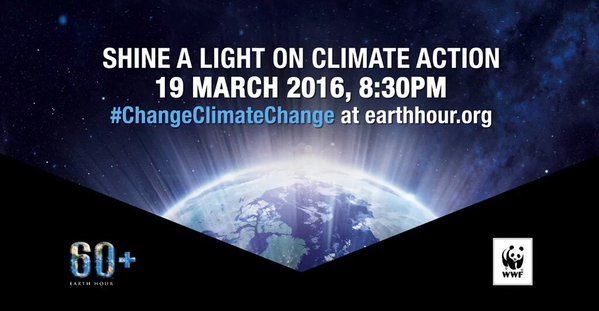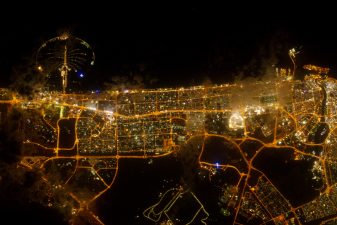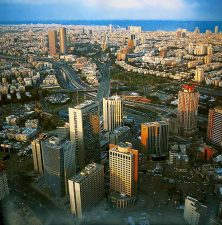 Earth Hour is upon us. It comes every year on Saturday 19 March, as the clock strikes 8:30 PM around the globe. It’s a worldwide movement that aims to unite the global community on a broad range of environmental issues, working on a grassroots level to enact mass behavioral change. Join the fun by turning off non-essential lights for one hour as a symbol for your commitment to the planet.
Earth Hour is upon us. It comes every year on Saturday 19 March, as the clock strikes 8:30 PM around the globe. It’s a worldwide movement that aims to unite the global community on a broad range of environmental issues, working on a grassroots level to enact mass behavioral change. Join the fun by turning off non-essential lights for one hour as a symbol for your commitment to the planet.
Organized by the World Wildlife Fund (WWF), the event launched in 2007 as a singular “lights-off” event in Sydney, Australia and has since grown to engage more than 7,000 cities and towns worldwide. WWF reported that last year, a record-breaking 172 countries and territories took part, with about 10,400 participating landmarks going dark for an hour.
Earth Hour aims that by darkening our rooms we will enlighten our awareness of the opportunities and challenges of creating a sustainable world.
According to the event website, the movement has racked up some tangible achievements:
- WWF Uganda started the world’s first Earth Hour Forest
- More than 250,000 Russians voiced support for better protection of their country’s seas and forests
- Argentina used its 2013 Earth Hour campaign to help pass a Senate bill for a 3.4 million hectare Marine Protected Area in the country
- Thousands of wood-saving stoves were distributed to families in Madagascar
- Solar-powered lights were installed in three villages without electricity in India
- In Paraguay, WWF used the Earth Hour platform to build public support to gain an extension of the logging moratorium, helping to reduce deforestation
- Education programs for schools were launched in Thailand and Taiwan
- Hundreds of thousands of LED lights were installed by girl scouts in the USA
- More than 2123 mitigation actions submitted by Earth Hour City Challenge 2014 participating cities
It’s symbolic. The organizers don’t measure resultant reductions in power consumption or greenhouse gas emissions. It seems especially effective when children participate; a powerful way to convey climate change issues in a visually memorable way. But is it a bit too much of “child’s play” to incite radical change among the world’s largest energy consumers? Now in its tenth year, the one-hour event continues to be the key driver of the wider environmental movement.
If you’re reading this now from Egypt, Jordan, Israel or Lebanon – go flip off the power and come back in 30 minutes. Missed the hour in your local time zone? Self-direct, and pick another hour to switch off. Or drop some cash to the cause via their website donation tab.



